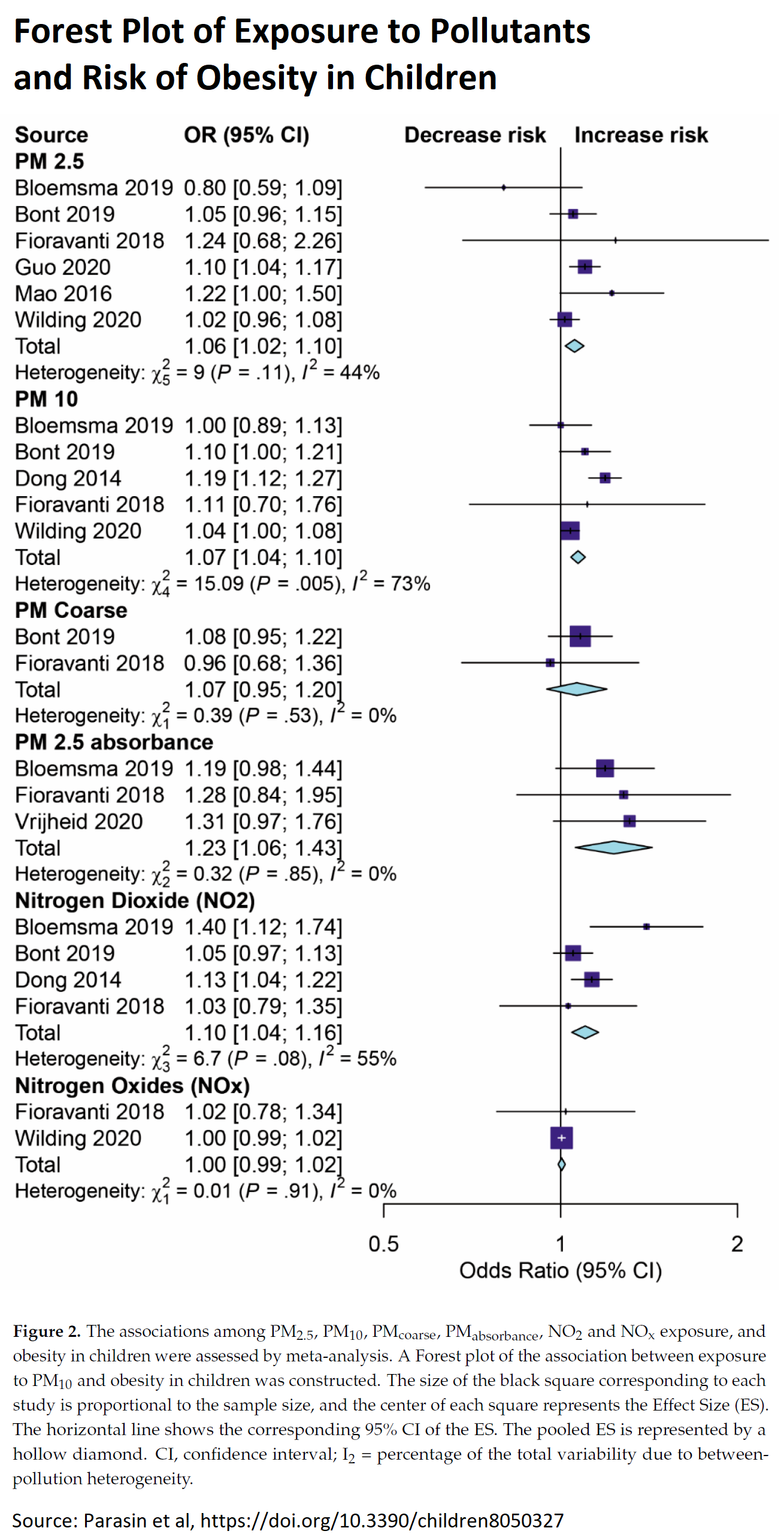
Disparities in the Air We Breathe and in Obesity
Patterns of disparities surround us so completely that we become immune to them. In fact, disparities even extend to the air we breathe. People of color have dirtier air to breathe and that contributes to disparities in health in countless ways. New research offers evidence that air pollution contributes to the risk of childhood obesity. Thus, disparities in exposure to air pollution can contribute to disparities in obesity.
A Small Effect
 Let’s be clear. The effect of air pollution on obesity risk is small. The most recent publication on this is a systematic review and meta-analysis. Nichapa Parasin et al found a six percent increase in risk.
Let’s be clear. The effect of air pollution on obesity risk is small. The most recent publication on this is a systematic review and meta-analysis. Nichapa Parasin et al found a six percent increase in risk.
Likewise, Jeroen de Bont et al found a two to three percent increase in risk with exposure to air pollution. This was a large longitudinal study. It followed 416,955 children in Spain for a decade. The authors noted that the risk they found was small, but significant:
“This study suggests that early life exposure to air pollution may be associated with a small increase in the risk of developing overweight and obesity in childhood, and that this association may be exacerbated in the most deprived areas. Even these small associations are of potential global health importance because air pollution exposure is widespread and the long-term health consequences of childhood obesity are clear.”
No Choice but to Breathe
New research in Science Advances paints a stark picture. The legacy of racist housing policies has ensured that disparities in exposure to pollution remain even as overall exposure goes down. Black and brown people get the dirtiest air to breathe. It really is that simple.
The consistently stark disparities surprised the lead author of this research, Christopher Tessum:
“We expected to find that just a couple of different [pollution] sources were important for the disparate exposure among racial ethnic groups. But what we found instead was that almost all of the source types that we looked at contributed to this disparity.”
Of course, when given the choice to breathe nothing but dirty air, disparities in health extend well beyond obesity. Fine particle pollution causes up to 200,000 excess deaths per year in the U.S. The global toll is much larger.
Systemic racism causes systemic disparities in health. Obesity is but one artifact of those disparities. Dirty air is one of the means for causing this. Clearly, we should not be content to leave people with only dirty air to breathe based on race and ethnicity. It is immoral.
Click here for the Parasin study, here for the de Bont study, and here for the Tessum study. For further perspective, click here.
Smoke of a Ship and Sunset, painting by Fujishima Takeji / WikiArt
Subscribe by email to follow the accumulating evidence and observations that shape our view of health, obesity, and policy.
May 4, 2021
